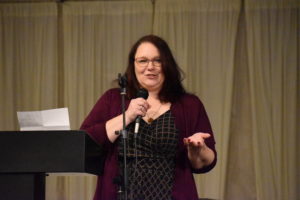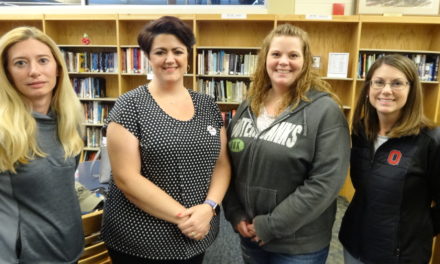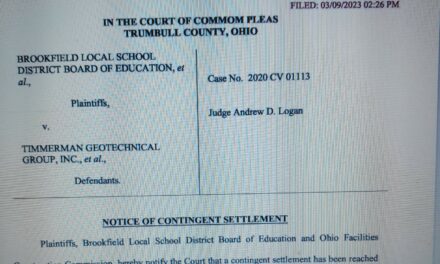Editor’s note: This story is part of a series on the Distinguished Alumni Hall of Fame Class of 2020.
Amy Zell attempted suicide in ninth grade.
“I already felt like it didn’t matter if I’d be here anymore,” she told Brookfield High School students March 4.
Zell, then known as Amy Maliner, had a best friend, but didn’t tell that friend that she was hurting. She thought the news would be “too big” for her friend. That story underscores something she still sees today, all these years later, she said – People don’t know how to say, “I need help.”

Amy Zell
Looking around that auditorium of teenagers, Zell challenged them not to let such news be too big.
“You gotta be those people that they can come to,” said the 1990 graduate.
You don’t just become that person overnight, and you don’t have to be trained in counseling and emergency crisis response to do the job. You have to take care of yourself, practicing a healthy physical and mental lifestyle; you have to be a good friend, one who talks positively and doesn’t put others down; and you have to develop relationships with people who might be able to help, Zell said.
There were many teachers in school whom she didn’t trust when she was in high school, Zell said, but she knows there are many there today that she can trust. They are one source for guidance, support and referrals.
“You have teachers in the school that are really good at getting you where you have to go for help,” said Zell, who works with survivors of suicide loss for LOSS Community Services of Columbus, and Trumbull County LOSS.
If there is no adult you think can help, call 211, the hotline for Help Network of Northeast Ohio, she said.
“If you dial 211 you will get help with whatever you need, whether you just need to talk to somebody for a few minutes, whether you’re suicidal, whether you don’t have any food in your house, whether your bills aren’t getting paid, if someone’s hurting you and you have a domestic abuse situation, Help Network is your place to call – they’ll give you a good referral,” Zell said.
Keep an eye on your friends, she said. If a friend suddenly stops hanging out, check on them. Their reclusiveness could be a sign that something’s wrong. If they start walking around with their head and shoulders down, when normally their head and shoulders are up, or they start talking about hating everything, ask them what’s going on, said Zell, whose son, Tyler Neral, died of his own hand at 16.
Be aware of the words that you use, Zell said.
“How we choose our words matters,” she said. “Think about how we say things. If someone has attempted suicide and talks about hanging, and then you’re like, ‘Oh, we should hang out.’ How do you think they feel?”
If you have a friend who has lost a loved one or gone through some other trauma, encourage them to talk about it, Zell said. If you don’t share stories and express feelings, they’ll eat at you and can cause physical manifestations, such as high blood pressure and inability to sleep.
 “I can tell I’m not dealing with my grief because my lower back will start to hurt really bad,” Zell said.
“I can tell I’m not dealing with my grief because my lower back will start to hurt really bad,” Zell said.
Don’t take on your friend’s burden or feel that you have to be the one to save them, Zell said
“Your goal is to help them make the decision to talk to someone else,” she said. “A lot of people can’t carry that weight, and you shouldn’t have to carry that weight. You should always refer them to someone that’s qualified to help them. We call that being responsible to people instead of being responsible for people. Everyone of us should be responsible to each other.”
@@@
The Hope Foundation for the Mahoning Valley on April 29 presented Amy Zell with a H.O.P.E. Award for Lifetime Achievement for her efforts to go “above and beyond to help or assist others in the Valley.”








